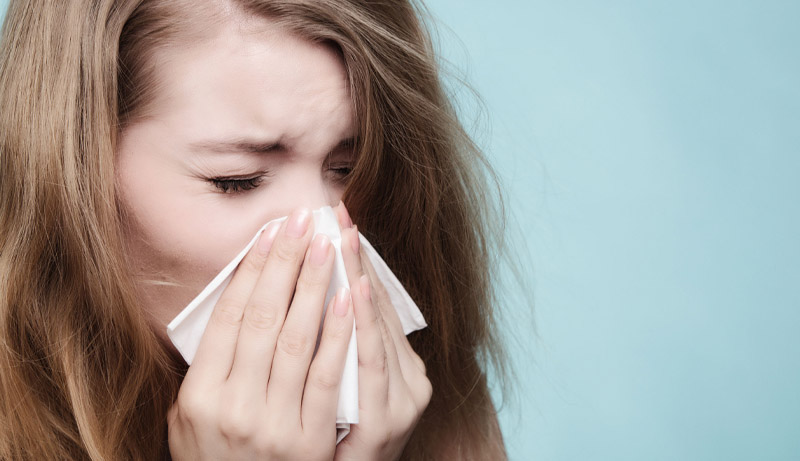What is Making Me Sneeze?

Beautiful flowers, grass and budding trees are everywhere in the spring and while nature is certainly a season to marvel, those same flowers and trees may wreak havoc on people who suffer with seasonal allergies. The tree pollen allergy is at its peak from March through mid-May. Grass pollen is at its peak season from mid-May to mid-July and ragweed season runs from mid-August through the first frost.
Beware of the Invaders
According to Dr. David Totton, Ambulatory Pharmacist with Shore Physicians Group, “An allergy is basically the body’s immune system responding to a substance it identifies as an invader. The body sees it as foreign and the immune system has an allergic response to that invader,” said Dr. Totton. “This time of year, pollen is the most common allergen.”
The immune system does more to protect the body. As Dr. Totton explained, the immune system recognizes this invader, resulting in mast cells sending a message to release histamines. Those histamines boost blood flow in the area where the immune system detected the invader. If it is pollen, the immune system will launch the trigger, sending histamines to the nose and prompting the thin membrane walls to produce more mucus. That mucus in turn will cause a runny nose, trigger sneezing and may result in coughing and watery eyes; classic allergic reactions.
The Job of Antihistamines
In the midst of allergy season people are reaching for something to squelch the nagging sneezing, runny nose and watery eyes. For many, antihistamines will do the trick. Dr. Totton said there are histamine receptors all over the body but said the seasonal type allergies due to pollen and grasses normally affect the lungs and the nose. Antihistamines will suppress or block the histamine-induced response in the body, normally swelling, and it will stop the sneezing, itching, sore throat and watery eyes.
Types of Antihistamines
There are different types or strengths of antihistamines, and some will cause drowsiness. As Dr. Totton explained, there are two generations of antihistamines. The first-generation antihistamines block histamine receptors and also cross the blood-brain barrier and block central nervous system and cholinergic receptors as well. These may cause drowsiness, headache and dry mouth, nose and throat. Dr. Totton said diphenhydramine products such as Benadryl are among those first-generation antihistamines that have the unwanted side effect of sedation.
Shore Physicians Group Ambulatory Pharmacist services include:
- Medicare Annual Wellness Visit (No copay) Available In Office or Via Telehealth
- Comprehensive Medication Review:
- Are all your medications safe and effective for you?
- Is the Medication you’re on appropriate for all health conditions?
- Are there any potential interactions between medications that could increase side effects, or reduce effectiveness?
- Can you save money on your current medications?
- Answer Your Medication Related Questions:
- When is the best time to take the medication?
- Should you take them with/without food, and can you safely take them with your supplements?
- Review over-the-counter products including, vitamins and supplements
- Comprehensive Health Risk Assessment
- Assess Vaccination History
- Complete Routine Preventative Screenings
- Many more services included
Ask to schedule a visit with Ambulatory Pharmacist Dr. Totton when you see your primary care provider.